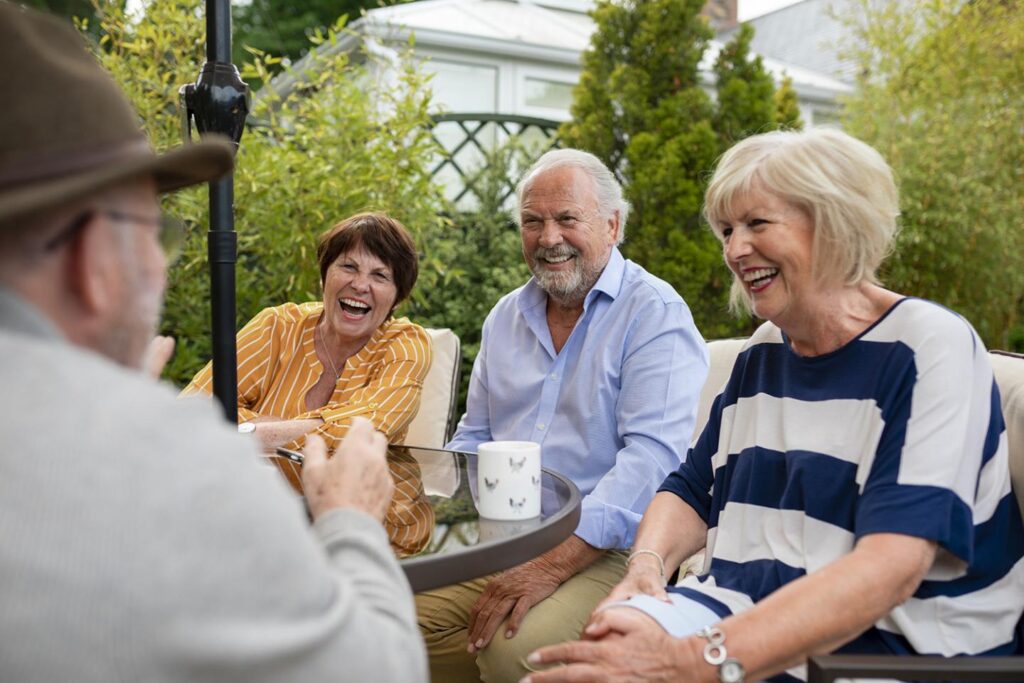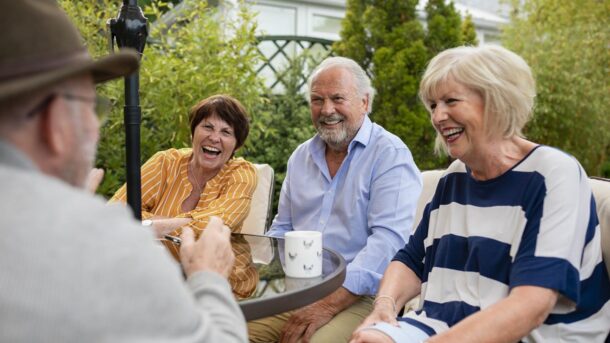Humans are inherently social animals, and this need for connection does not diminish with age. In fact, social interaction becomes even more crucial in our later years as the elderly may experience loneliness due to retirement, the loss of a spouse, or physical limitations. Companion services offer regular social interaction, emotional support, and a sense of belonging to the elderly – key factors in maintaining physical and mental health. This article will explore what companion services are, why they are important, and how to choose the right companion service for your loved one.

Why is social interaction important for the elderly?
Loneliness and isolation are serious problems for the elderly, which can affect both mental and physical health. According to multiple studies:
- Loneliness increases the risk of depression, anxiety and cognitive decline.
- Long-term isolation is associated with a higher incidence of cardiovascular diseases, high blood pressure and weakened immune systems.
- Participating in social activities helps keep the mind sharp and reduces the risk of dementia.
By maintaining a healthy social life, the elderly often feel more closely connected to the world around them, have greater motivation to stay active and experience an enhanced sense of purpose.
Types of Companionship Services
Companionship can take various forms, ranging from informal, volunteer-led programs to professional care facilities:
- Professional companionship: These services are provided by home care agencies and usually offer background-checked and trained companions who can visit regularly.
- Volunteer programs: Community organizations, churches or non-profit groups may match volunteers with elderly people who need social interaction.
- Adult day centers: Group activities held in dedicated facilities are ideal for those who enjoy socializing outside the home.
- Senior companion programs: Some government-funded initiatives train and compensate older adults to provide companionship to homebound seniors.
Home care agencies
Home care agencies now offer non-medical, companion-centered services in addition to personal care. Their companions can:
- Participate in activities: Reading books, playing puzzles, watching movies or discussing common interests with the elderly.
- Accompany the elderly on outings: Go to the park, shopping centers or participate in local community activities.
- Handle light housework: Simple cooking, light cleaning or pet care.
- Monitor overall well-being: Although they do not provide clinical care, they can observe changes in mood, appetite or energy levels and report concerns to family members.
For example, if you are located in Southern California, you can explore Glenwood Home Care or similar services in other local cities. Many providers customize packages specifically for companionship services, making it easier for you to find the right person.
Determine whether the elderly need companionship
Even when older people need help, they don’t always ask for it. Here are signs your loved one may need companionship:
- Common comments about loneliness: Expressing sadness or mentioning that they spend most of their days alone.
- Lack of social activities: No longer participating in clubs, social activities, or religious services that were once important to them.
- Changes in grooming or household cleanliness: Isolation can sometimes lead to a decrease in self-care or household maintenance.
- Neglected hobbies: If they stop participating in activities that once brought them joy, this could be a red flag.
- Increased forgetfulness or confusion: While a lack of social interaction is not always due to loneliness, it can lead to cognitive decline.
Addressing these issues early can improve quality of life and may prevent more serious mental or physical health complications in the future.
The benefits of regular social interaction
- Enhanced emotional health: Older adults often feel happier and more supported when they have someone with them to spend their days with.
- Mental stimulation: Conversations, puzzles, and new activities help keep your mind active.
- Physical health benefits: Peers can encourage people to engage in light exercise, walking, or stretching to increase mobility and cardiovascular fitness.
- Lowers the risk of depression: Regular social interaction can act as an emotional safety net, helping older adults cope with the loss of a companion or other life changes.
Senior companionship services fill a critical gap in senior care, addressing not only physical safety but also emotional well-being and mental stimulation. Companionship can stave off loneliness and its associated health risks by providing conversation, shared activities, and constant friendly companionship. Whether through professional agencies, volunteer programs or a combination of the two, ensuring older people stay socially connected can significantly improve their quality of life.



